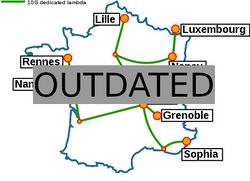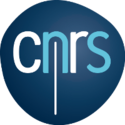Grid5000:Home
|
Grid'5000 is a large-scale and versatile testbed for experiment-driven research in all areas of computer science, with a focus on parallel and distributed computing including Cloud, HPC and Big Data. Key features:
|
Five random publications that benefited from Grid'5000 (at least 2932 overall):
- Théophile Bastian. Towards automatic characterization of microarchitectural behaviour form performance modeling of computing kernels : an analysis of the Cortex A72 and Intel microarchitectures. Hardware Architecture cs.AR. Université Grenoble Alpes 2020-.., 2024. English. NNT : 2024GRALM072. tel-05116111 view on HAL pdf
- Louis Roussel, François Lemaire. Deep Learning for Integro-Differential Modelling. 2025. hal-05230281 view on HAL pdf
- Charles Bouillaguet. Algorithm xxx: Evaluating a Boolean Polynomial on All Possible Inputs. ACM Transactions on Mathematical Software, In press, 10.1145/3699957. hal-04418528v2 view on HAL pdf
- Barbara Gendron, Gaël Guibon. SEC : contexte émotionnel phrastique intégré pour la reconnaissance émotionnelle efficiente dans la conversation. 35èmes Journées d'Études sur la Parole (JEP 2024) 31ème Conférence sur le Traitement Automatique des Langues Naturelles (TALN 2024) 26ème Rencontre des Étudiants Chercheurs en Informatique pour le Traitement Automatique des Langues (RECITAL 2024), Jul 2024, Toulouse, France. pp.219-233. hal-04623019 view on HAL pdf
- Georges da Costa, Amina Guermouche. Measurement methods sheet, WG6 Exa-Soft. Université de Toulouse; Université de bordeaux. 2025. hal-05272179 view on HAL pdf
Latest news
Failed to load RSS feed from https://www.grid5000.fr/mediawiki/index.php?title=News&action=feed&feed=atom: Error parsing XML for RSS
Grid'5000 sites
Current funding
As from June 2008, Inria is the main contributor to Grid'5000 funding.
INRIA |
CNRS |
UniversitiesUniversité Grenoble Alpes, Grenoble INP |
Regional councilsAquitaine |


